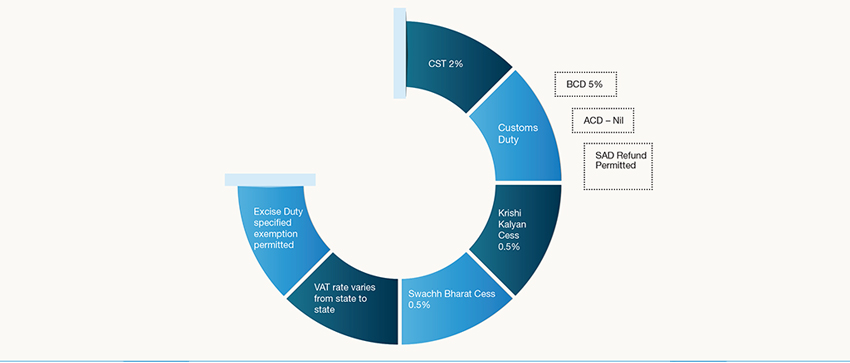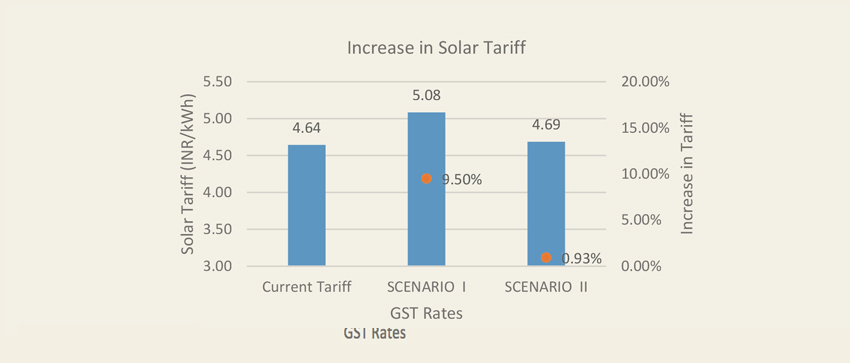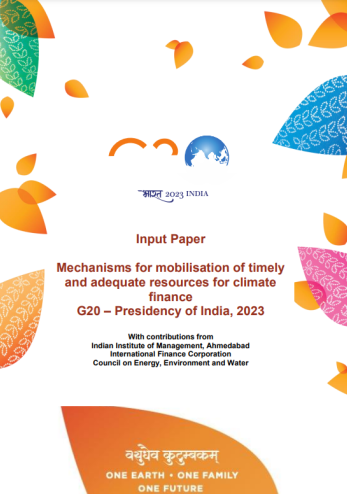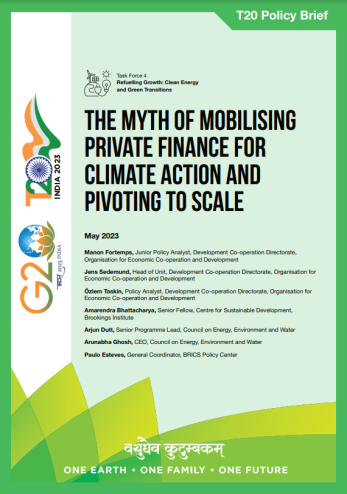Policy Brief
GST: A Good Solar Tax?
Impact of the Proposed GST on India’s Solar Ambitions
Neeraj Kuldeep, Anjali Viswamohanan
January 2017 | Sustainable Finance
Suggested Citation: Kuldeep, Neeraj and Anjali Viswamohanan. 2017. GST: A Good Solar Tax? New Delhi: Council on Energy, Environment and Water.
Overview
This policy brief analyses the effects of the implementation of the Goods and Services Tax (GST) in India, especially on solar tariffs, and makes recommendations to offset the negative impact of the new tax regime on the Indian solar sector.
Applicable taxes in the Solar Energy Sector

Key Findings
- A ten per cent increase in tariffs is projected if current tax exemptions were to be curtailed in the roll out of GST.
- An increase in tariffs would be observed due to an increase in operations and maintenance costs, panel costs, and financing costs.
- The increase in solar tariffs would be higher for states (such as Rajasthan) where VAT and Entry Tax exemptions are currently provided for solar equipment, as opposed to states (such as Gujarat) where exemptions are not provided.
- If tax exemptions are curtailed, GST could increase capital cost of a solar project by INR 4.5 million per megawatt and set the sector back by 18 months in terms of cost competitiveness.
Comparing existing solar tariff with solar tariff in GST regime

- GST could impact the pace on the second phase of the solar park development to add an additional 20,000 MW capacity.
- GST will boost the ‘Make in India’ initiative and improve the competitiveness of Indian manufacturers of solar cells, panels and modules.
- The increased competitiveness will eliminate the cascading effect of the existing tax structure and introduce an input tax credit. It could also create an additional 37000 new jobs in the solar manufacturing sector by 2022.
Solar tariffs and the estimated acceleration in deployment required for the solar sector in 2017 will largely depend on the manner of implementation of the Goods and Services Tax regime.
Key Recommendations:
- Clarify the revision of solar tariff bids under GST and provide clear guidelines regarding the applicable GST slab for solar power projects.
- Provide government mechanisms to offset the negative impacts of GST (if any), as and when it is implemented.
- Asses potential increase in capital investment and consider provisions to revise bid tariffs.
- Ensure that the current exemptions applicable to the solar sector continue as a temporary measure.
- Offset increase in solar tariffs by increased Accelerated Depreciation benefits.
- Provide a revised Viability Gap Funding (VGF) to offset the increased capital costs due to the implementation of GST.






